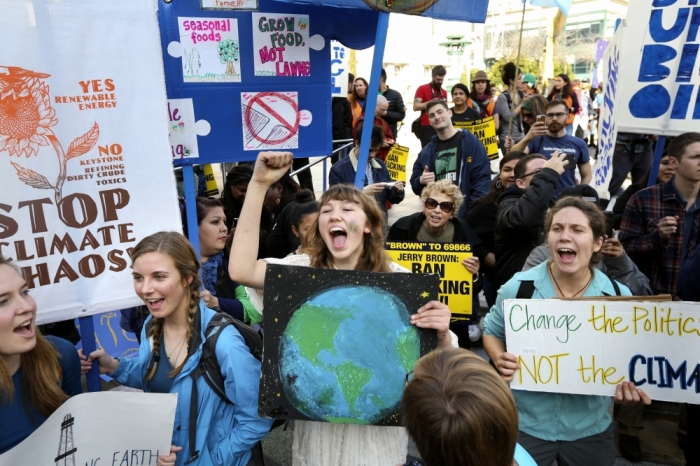Liberals Are as Anti-Science as Conservatives, Study Finds

Liberals can be just as anti-science as conservatives, a study finds, when the science challenges their politics.
"The Partisan Brain: How Dissonant Science Messages Lead Conservatives and Liberals to (Dis)Trust Science," was posted online and will be published in the March issue of The Annals of the American Acadamy of Political and Social Science, which contains several articles of the theme of politics and science. The Ohio State authors are Erik Nisbet, associate professor of communication and political science, Kathryn Cooper, a doctoral student in communication, and R. Kelly Garrett, associate professor of communication.
The findings challenge previous research reporting that the brains of conservatives are different than the brains of liberals and "are fundamentally less capable of rationally processing scientific evidence."
The study's sample of 1,518 adults were divided into three groups. Group one was asked about scientific research related to climate change and evolution that challenged the views of many conservatives; group two was asked about scientific research related to fracking (a natural gas extraction method) and nuclear power that challenged the views of many liberals; and group three was asked about politically neutral scientific research related to astronomy or geology.
Both liberals and conservatives were less likely to trust the scientific results in the groups where those results were out of sync with their own ideology.
Interestingly, liberals, moderates and conservatives were all less trustful of the science that was related to political debates compared to the ideologically neutral science. In other words, conservatives were less trustful of science related to fracking and nuclear power, though not as distrustful as liberals, compared to science related to ideologically-neutral astronomy and geology findings. And liberals were less trustful of science related to climate change and evolution, though not as distrusful as conservatives, compared to the ideologically neutral science.
Conservatives and liberals were not equally likely to reject the science that was dissonant with their ideology. Conservatives were more likely than liberals to be distrustful. The authors attribute this to media coverage of the debates.
There has been much coverage of the scientific debates over climate change and evolution. By comparison, there has been little coverage of the scientific debates over fracking and nuclear power. Respondents, therefore, would be much more aware of controversies over climate change and evolution than fracking and nuclear power.
The researchers also found higher levels of anger associated with the distrust over climate change and evolution than the distrust over fracking and nuclear power.
In the discussion section of the paper, the authors claim that the distrust in science that develops over politicized scientific findings harms the ability of scientists "to be effective communicators and advocates for science."
They also argue that the previous studies presuming to show that conservatives were more anti-science than liberals due to a mental deficiency did a "disservice" to the cause of science communication, and likely made matters worse.
"By promoting the idea that there are inherent psychological differences between conservatives and liberals when forming attitudes and making judgments about science, they are effectively — and ironically — contributing to the very political polarization of science they decry and thereby inhibiting more effective science communication. ... by targeting conservatives specifically as somehow uniquely deficient when it comes to science, the overall framework of [that view] lends itself to focusing on ideological countermobilization and/or a conversion of worldviews ("If only everyone were liberal!"), rather than to bridging ideological gaps. ... Demonizing a third of the population in a science policy debate by claiming they have an insurmountable psychological deficit does nothing to promote a solution to the challenges of effective science communication. And, as we have shown here, it is not empirically justified," they wrote.




























